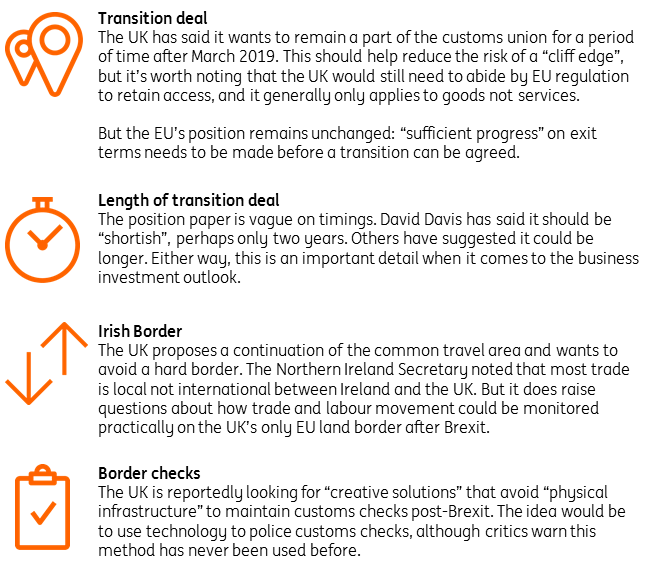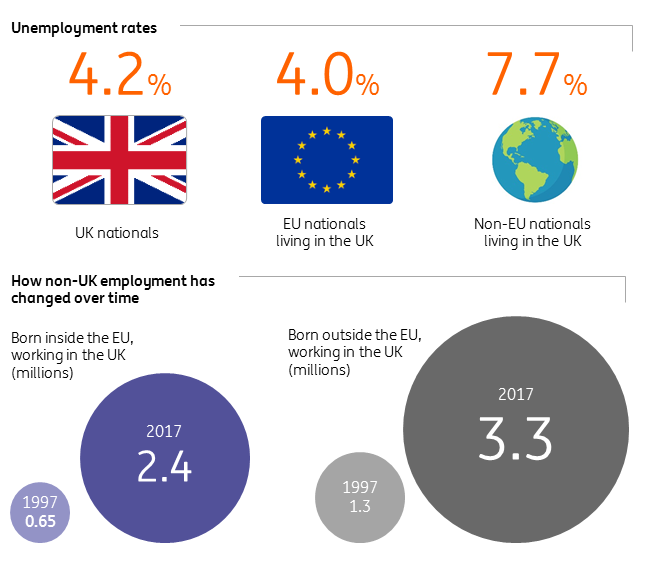Brexit latest: A clearer position?
After a summer lull, Brexit is back in the headlines as the UK unveils position papers on a future deal.
Brexit is back! Here's what we've learned from this week's position papers
We've seen increasing signs of unity amongst UK ministers on the need for transition deal after Brexit in recent weeks. This week, position papers released by the British government show that the UK favours a post-Brexit customs arrangement that is as little changed as possible, with the Irish border kept free of physical checks.
The reaction from Europe can be described as “mixed”. Michel Barnier, Europe's Chief Negotiator, has reiterated that progress needs to be made on the divorce bill, citizens’ rights and the Irish border before they will be prepared to move onto future arrangements. Business has been encouraged by the government’s formal acceptance of the need for a transitional arrangement, but there is still a lack of clarity on what the post transition environment will look like. This means uncertainty will continue, which will weigh on growth.

PM May's satisfaction rating among voters has plunged
Theresa May’s satisfaction rating among the UK electorate appears to have plunged 22 points between calling the election in April and now, according to latest polls. Just 34% of British people are “satisfied” with the job she is doing, which is the worst rating ever for a Prime Minister one month after an election.
Opposition leader Jeremy Corbyn is on 44%, but May is still seen as the person who is most capable for the job of Prime Minister. She leads Corbyn 46%-38% on this question. Her next big test will be the upcoming Conservative party conference in early October. If this doesn’t go well it could intensify speculation about a possible leadership challenge.
| 22 |
Points PM May's satisfaction rating has fallen since April(Source: Ipsos Mori) |
How Brexit is affecting the jobs market
The latest jobs numbers were healthier than expected, with wage growth beating expectations. We still have our doubts that the rate of pay growth will increase to 3% next year as the Bank of England hopes, amidst elevated uncertainty and slowing economic momentum. You can read more about our thoughts on the latest jobs numbers here
But what might Brexit mean for the jobs market in the longer term? Whatever deal is agreed after Brexit, it's worth noting that there are currently more nationals born outside of the EU working in the UK, than those born in EU countries. Whilst numbers of workers from the EU may moderate over the next few years, the trend suggests that non-EU employees could fill any gaps created.

This publication has been prepared by ING solely for information purposes irrespective of a particular user's means, financial situation or investment objectives. The information does not constitute investment recommendation, and nor is it investment, legal or tax advice or an offer or solicitation to purchase or sell any financial instrument. Read more
Download
Download article
